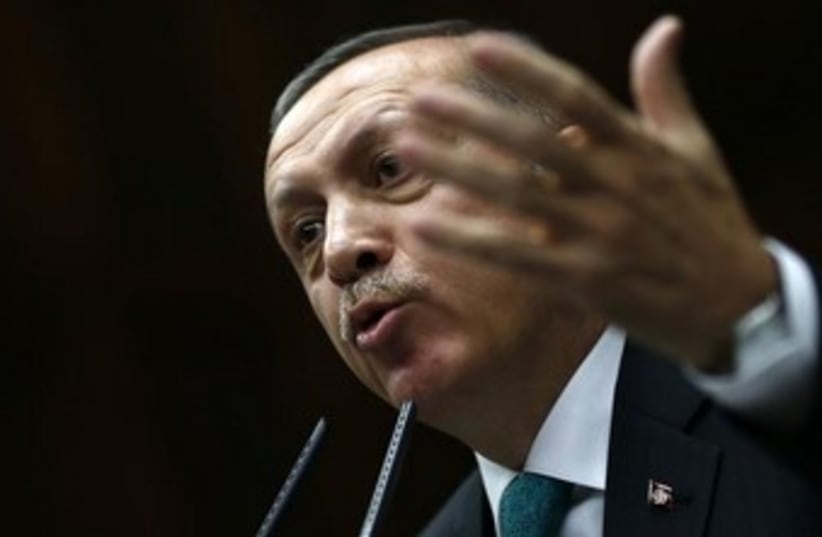Turkey has accepted assurances a planned NATO missile defense system in which it is playing a part is not designed to protect Israel as well, the alliance's deputy secretary-general said on Wednesday.
Alexander Vershbow said objections by Prime Minister Tayyip Erdogan's government had resulted in part from confusion about a Turkish-hosted NATO radar. Ankara had been further assuaged by alliance Patriot anti-missile batteries assigned to protect its territory from Syria.
A leaked US diplomatic cable from 2010 described the Islamist-rooted Erdogan, under whom Turkey's once-solid ties with the Jewish state have deteriorated, as worrying that the NATO shield might provide cover for a threatened Israeli attack on Iran's nuclear sites.
Addressing an Israeli security forum, Vershbow said there had been "a lot of confusion" in Turkey, including over the similarity between its NATO radar and a US radar posted in Israel to help it spot any ballistic missile launches by Iran.
"I think that there was misperception that somehow the NATO system would be focused on the protection of Israel and that Israeli-based assets would be part of the NATO system, whereas in fact these are two separate issues," he told Tel Aviv University's Institute for National Security Studies (INSS).
"So I think that issue has receded. It may still be a problem among some parts of Turkish public opinion, but I think Turkey is now as a government supportive of missile defense."
He linked that support to the fact the Erdogan government has "been benefitting from the deployed Patriots now for more than a year, deterring the Assad regime from firing some of its Scud missiles against civilian population centers in Turkey."
Ankara agreed in 2011 to host an early-warning radar system as part of the NATO ballistic missile defense system.
The NATO missile defense system, which Vershbow envisaged being complete by the early part of the next decade, has encountered fierce opposition from Russia though the alliance insists the plan is not to counter its capabilities.
Vershbow chided Moscow for not taking up NATO offers to cooperate on missile defense and for apparently ignoring the assessments of Russian experts that the shield's technologies and deployment were inconsistent with a threat on the country.
"This has actually been documented in numerous scholarly articles by Russian generals and rocket scientists in Russian journals," said Vershbow, a former US ambassador to Moscow and Pentagon official.
"But the bad news is that Russian leaders and senior officials seem to pay no attention to their experts ... Instead they continue to beat the drum about the purported threat posed by NATO's missile defense system to Russia's strategic retaliatory capability coupled with ominous warnings of retaliation against a threat that does not exist."
Among such messages have been media reports of new Russian missile deployments in Kaliningrad, a western enclave of Russia lodged between NATO members Poland and Lithuania.
"After some days of ambiguity they made clear that they haven't yet deployed them," he told Reuters."There is expectation that they will replace the older generation (of missiles). They have recast this system thing that they had planned to do and they are characterizing it as retaliation at least in part to (NATO) missile defense.”
